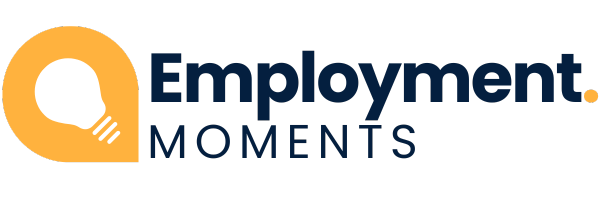In today’s fast-paced work world, facing challenges is common. These obstacles can either block your way or open new doors for growth. Studies show that about 70% of workers hit big hurdles in their careers.
It’s key to find ways to get past these challenges. Being resilient and open to learning from tough times is vital. This path is not just about getting through hard times. It’s about how these experiences help shape your future success.
Understanding the Nature of Challenges in Your Professional Journey
In the world of work, people face many challenges that can change their careers. These can be from office politics to managing work and personal life. Knowing these obstacles is key to growing in your career and dealing with them well.
Types of Challenges Faced
Communication problems are a big challenge in work. A study by the American Psychological Association shows that not getting support from managers makes things worse. Also, fast changes in technology can make jobs less secure and hinder growth, as Forbes points out.
Workplace issues aren’t just outside problems; they can also come from within. A Gallup survey found that when people face both personal and work problems, their engagement drops. Knowing these issues helps in finding ways to overcome them and advance in your career.
Identifying Personal Barriers to Overcome
Understanding personal barriers is key for career growth. Self-assessment helps spot obstacles that hold you back. Reflection in professional development deepens this understanding and offers solutions.
Using SWOT analysis is very helpful. It helps you see your strengths, weaknesses, opportunities, and threats. This clarity on personal challenges is crucial. Harvard Business Review shows that self-reflection makes leaders more adaptable and better at solving problems.
Self-assessment boosts motivation and helps set goals. A study in the Journal of Career Development found that self-assessment increases motivation. This process helps overcome personal barriers and guides in creating growth strategies.
Workshop materials from the Center for Creative Leadership can improve self-awareness. Exercises aimed at professional development offer valuable insights into personal barriers. By identifying these obstacles, you can move forward in your career and set yourself up for success.
Developing a Resilience Mindset
Having a resilience mindset is crucial in today’s work world. It helps people bounce back from tough times and adjust to new situations. This mindset leads to better job performance and happiness.
Being adaptable in your career is key in today’s fast-paced job market. Those who stay open to change find new chances to grow. Studies from Stanford University show that a growth mindset helps people see challenges as learning opportunities. This boosts their creativity and innovation.
Mental toughness is also important. It means staying focused and committed, even when things get hard. People with mental toughness face challenges with confidence and determination. This reduces stress at work. Companies that support resilience see their teams grow stronger and work better together.
Strategic Planning for Career Advancement
Effective career planning starts with a clear plan for growth. Using SMART goals turns dreams into real steps. This approach makes your career path clear and focused.
Setting SMART Goals
Using goal-setting techniques helps reach career dreams. SMART goals are Specific, Measurable, Achievable, Relevant, and Time-bound. They help set clear, reachable goals.
Specific goals help you know what to aim for. Measurable goals let you track your progress. Achievable goals make sure you can reach them in time.
Relevant goals match your bigger career plans. Time-bound goals add a sense of urgency. This keeps you motivated.
Research shows clear goals lead to career success. SMART goals give your career plan direction and structure. A study in the Journal of Applied Psychology found clear goals improve performance.
Leveraging Professional Networks and Resources
Building a strong network is key in today’s job market. Professional networking opens doors and creates chances. It leads to valuable insights, collaborations, and job offers. In fact, 85% of jobs are filled through networking.
Mentorship is a vital support for career success. A mentor guides, shares experiences, and offers feedback. This helps professionals overcome challenges and advance in their careers. Those who have mentors often feel more satisfied and are more likely to get promoted.
Using resources like workshops and seminars also boosts your knowledge. These activities help you learn and build professional relationships. The Networking Effect report shows that strong connections lead to growth and skill improvement. Having a mentor and a strong network is crucial for success in your career.
Measuring Success and Continuous Improvement
Evaluating your career growth is key for anyone on a career path. Success isn’t just about reaching goals. It’s also about learning from both wins and losses. This helps you grow and succeed in a changing work world.
Studies by the National Career Development Association show that checking your skills often helps you grow. It shows how important it is to keep learning and improving. This is backed by research in the Journal of Business Venturing, which found that self-assessment leads to better business success.
The American Management Association also points out the value of feedback in career growth. By listening to feedback, you can get better and do your job better. Reflecting on your journey and always looking to improve will help you succeed and grow in your career.

